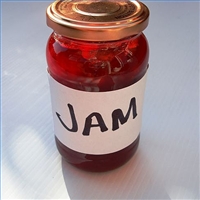One of the most asked questions to food extension folks has to be "how can I make (insert product here) in my home and sell it at the farmers’ market". In tough economic times, with unemployment at rates not seen for 30+ years, folks who have been told that they make great homemade jam, cookies, etc. and are stretched for resources have been looking for ways to capitalize on their skills and yummy foods. 
I’ve received variations on that question weekly since starting at NC State in January 2009 and am all for helping folks enter the food production arena — I just hope they do it safely.
After spending a few days discussing food safety culture with some of the world’s largest food producers and retailers, it’s clear to me that there are some companies out there who are protecting brands by committing resources to figure out where their biggest food safety risks are, how to reduce them and how to make sure everyone who works for them knows what to do (some organizations with tens of thousands of employees). Because making your customers ill is bad business, and really bad business when your brand is worth $100 million+.
But what about the smaller, newer food folks? Making customers ill is bad business for them too; especially when their family is counting on that income. The bigger guys who are serving millions of meals a day should be (and most of the time are) exceeding the public health and consumer protection rules. Just meeting the governments’ standards, which sometimes sets the bar low (at level of accepted public health risk) really isn’t enough for most, even if they claim that food safety isn’t a competitive issue. That’s why there are lots of internal and external audits, extra training, resources dedicated to food safety-linked incentives and enhanced supplier requirements.
The regulations (and the inspections created to enforce them) provide the must-hit basic level, especially for small or new producers. According to the Newcastle (Australia) Herald, regulation of home-based food businesses isn’t just a U.S. problem — the New South Wales Food Safety Authority is also exploring increasing inspection in the sector:
Owner of Beka Belle Cupcakes Rebecca Hague sells her cupcakes at Maitland markets and said she supported scrutiny of the home-food production industry.
‘‘I prefer they did that because it ensures people know that what I make is safe for everyone,’’ she said.
Mrs Hague said she had been inspected by council officers at the markets and had ‘‘never had any problems’’.
Mrs Hague, whose cupcake business is a hobby, said an extra cost of an inspection fee would make it hard to justify continuing the business.
How enforcement is funded is a contentious issue but regardless of how it’s resolved, inspectors are there to ensure everyone is following the rules. And to get into a discussion with producers about prioritizing risks, and nudging them in the direction on how to manage the ones that matter. Inspections and other resources provided through public health and food protection authorities help start the food safety culture discussion for smaller businesses.
